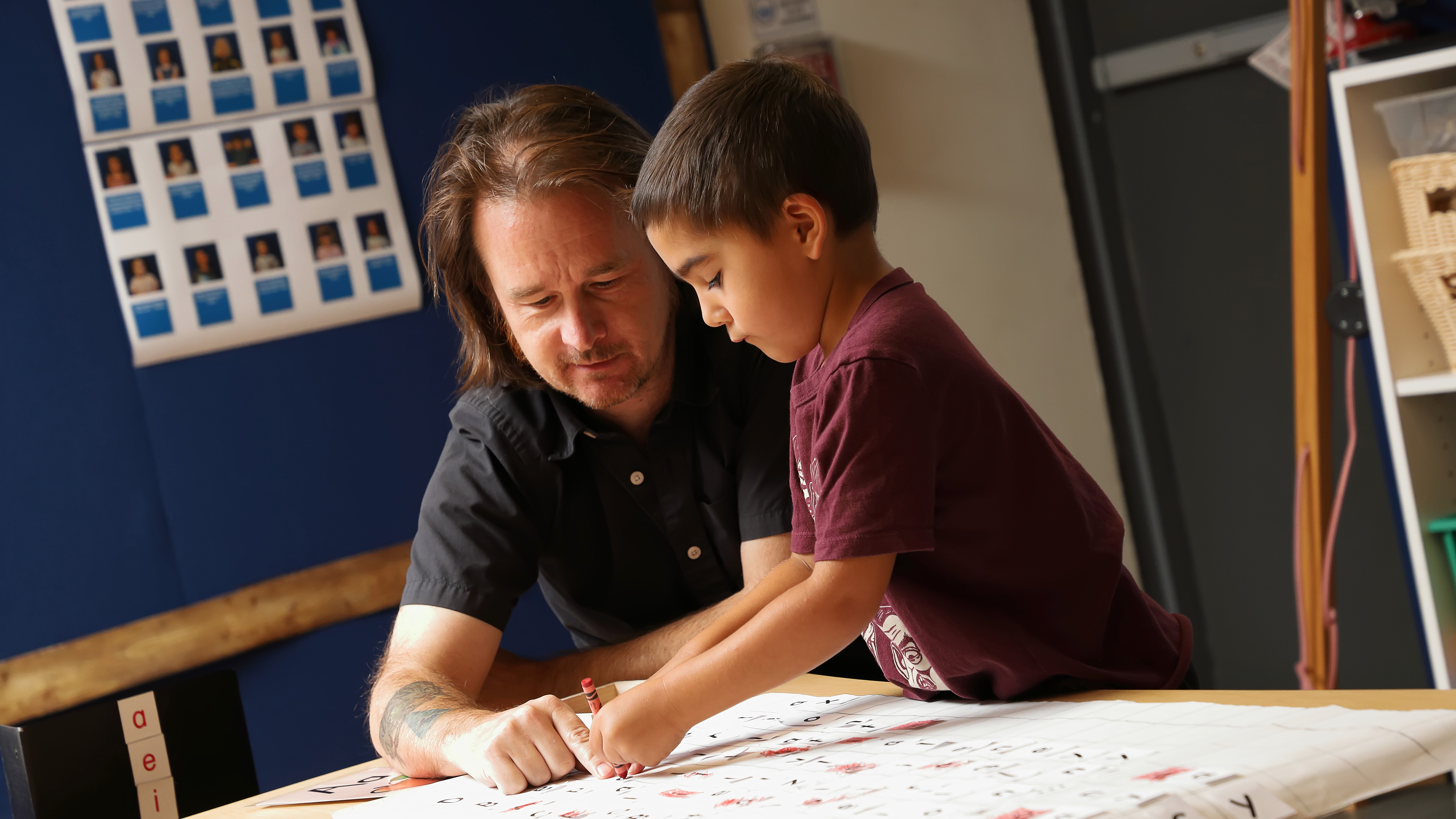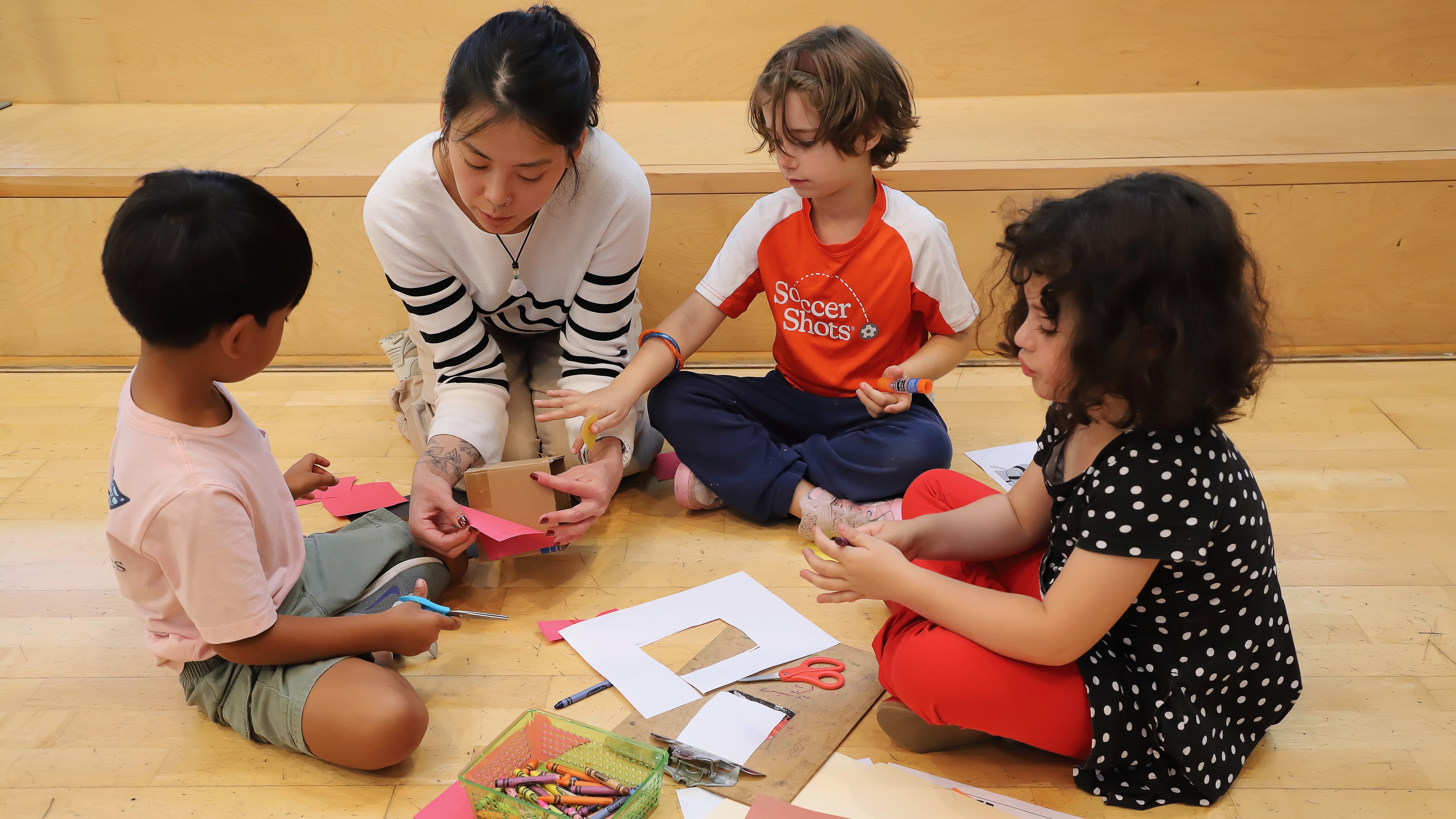
Early Learners
Program
This is where the journey starts—where curiosity is encouraged and essential skills begin to take shape. Through hands-on exploration, playful inquiry, and purposeful instruction, students build a strong foundation in reading, writing, math, and problem-solving, while developing a real interest in how and why things work. Our teachers work one-on-one and in small groups throughout the day to provide each child with the right level of support, guidance, and challenge.
Just as importantly, they learn to think for themselves, ask meaningful questions, stay focused, and collaborate with others. Each day brings new chances to grow—both as learners and as members of a community where every voice is valued and every student has a place.
How we teach
Rooted in the science of reading, students build phonemic awareness, learn to match sounds to letters, and start to blend them into simple words. Songs, games, and daily practice help every child develop robust foundational reading skills. Teachers work with children at their own level - one on one or in small groups - as they show interest and the capabilities to develop into individual readers.
Daily read a louds and time for children to explore books on their own give them an interest in and love of reading.
Students begin by learning to hold a pencil, form letters, and label pictures, using drawing and early words to share ideas and stories and progress to writing and sharing stories on their own. Teachers work with children at their own level - one on one or in small groups - as they show interest and the capabilities to develop into individual writers.
Students develop a strong number sense by counting, comparing, measuring and creating patterns that are integrated into play, practice games, and real-world tasks, such as baking. They learn that math has application in their daily lives.
Science and social studies are taught together through inquiry, exploration, observation, and discussion. Students develop early skills in asking questions and sharing their observations. They practice explaining what they see in their own words and listen to classmates’ ideas to learn from one another.
Students learn to collaborate and make decisions together. They learn the value of seeking feedback, e.g., by showing their drawings or explaining what they built and asking, “What do you think?” They’re also learning that it’s okay to try again and improve their ideas.
Projects are grounded by a strong understanding of concepts and skills, and then follow with student-driven projects that have solutions to problems they see. In the past they have designed buildings that are safe and fair for all citizens in the city, created systems to make the Earth more welcoming to pollinators, and built robots to clean up trash.
These early habits build the foundation for collaborative thinking, curiosity-driven learning, and problem-solving–oriented learning.
Specials
Introduce simple phrases and songs to build listening and speaking skills and to get them to feel comfortable in speaking a new language.
Enhancing fine motor and creative skills, and expressing ideas visually through all kinds of mediums including clay, painting, drawing, sewing, printmaking, and collage.
Singing and rhythm games that build listening skills, learning to play as a group, and how to play rhythm and mallet instruments.
Active games and movement challenges that build coordination, balance, sportsmanship and teamwork.
Designed to build self-awareness and make safe and healthy choices for themselves and for the community.
Two daily recesses and a daily scheduled period in our ½ acre outdoor learning space (the Nest), frequent neighborhood walks, e.g., to Overington Park, gardening, and excursions to the city’s wooded areas.
Travel to spaces all around the city help students see how what they learn in class matters in the wider world. Frequent trips to the library allows students to use their personal library cards as they learn about some of the city’s best resources.
Students practice kindness, inclusion, and fairness by taking turns, helping friends, and caring for shared spaces. They learn to notice how they feel and how their actions matter, using simple routines such as quiet reflection and group cleanup to build habits of respect and care. These early practices help students see that even small choices can make the classroom and the world around them better.
“Early childhood students are beginning to see outside of themselves, and that means finding ways to show care for one another. It's built into our classroom culture: when someone falls, you help them up; if someone is crying, hug them; if you make a mistake towards a friend, find a way to fix it.”














